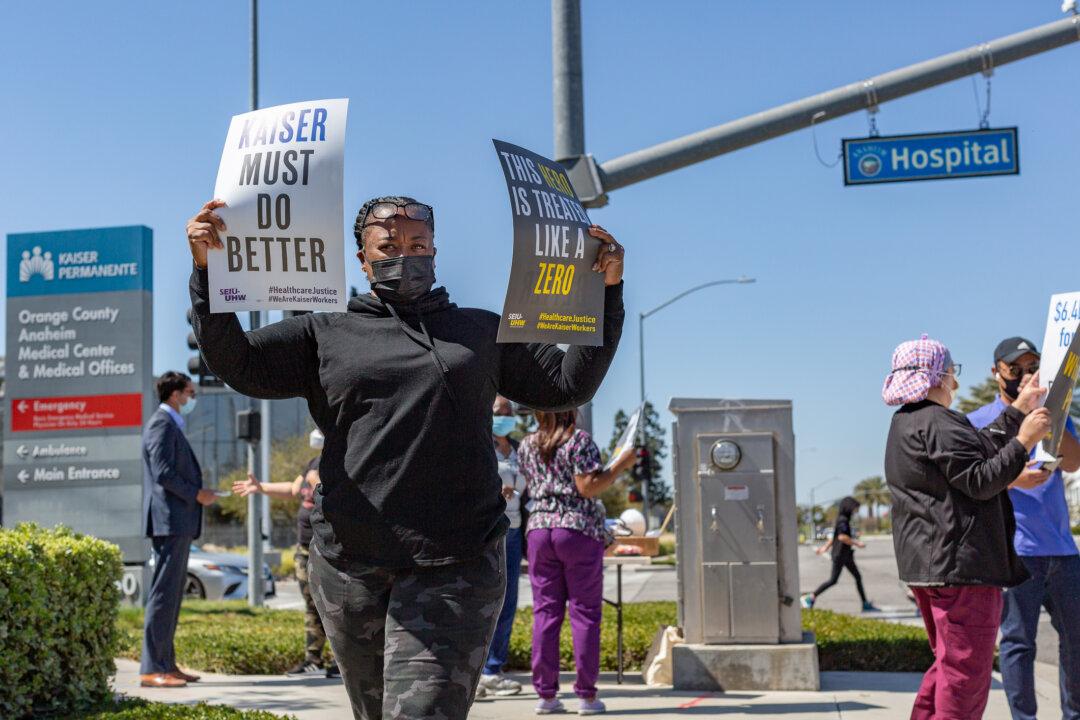Health care workers—unhappy with the lack of compensation for their sacrifices during the ongoing pandemic—gathered in Anaheim March 24 to protest Kaiser Permanente’s lower-than-expected annual performance payouts.
The rally was among 29 held at health care company Kaiser Permanente facilities statewide.





